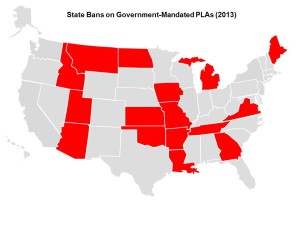Six Freed From Compulsory Unionism
Thanks to the assistance of the National Right to Work Legal Defense Foundation, six workers will no longer have union fees taken from the paychecks after they filed unfair labor practice charges alleging a violation of the Indiana’s newly minted…



